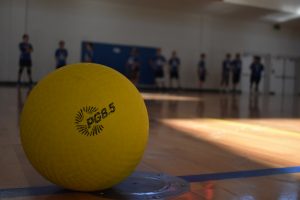Rule Proposal by Jude DuPart
Current: Two 25 minute halves (5 minute break in between), point is scored by eliminating all players on opposing team.
Proposal: 5 – 10 minutes periods. A point is scored by eliminating the other team OR Having the most players on the court at the end of the period. A team wins best of 5 but all points are to be played for record keeping (similar point system as exists) and to allow equal playing time. Additionally later points can be forgoed for sake of time or at discretion of captains.
One of the most antiquated policies in the NCDA is the game clock. Originally designed to ensure that everyone gets equal play time is getting cut short during games of extreme disparity and influences stall ball in close games. This makes games drag on and are not only boring, but stall growth.
This change would not only promote game speed (an incentive to actually throw a ball with the intent of getting people out, players stepping out when there’s no chance of scoring a point), but promote equal playing time of newer players (putting in B team for last two points after match is decided) and reduce the loss of enthusiasm from getting stomped 7-0. Additionally it would assist in keeping tournaments on schedule and would remove the need for an overtime scenario.
This might be unpopular because of the “comeback mentality”. I haven’t looked at the data but I doubt there are many instances where a team has been down 3-0 and won the match, but since this is a huge overhaul I’m interested to hear other opinions.
As previously mentioned this is a very loose proposal that has plenty of gaps. For instance, this does not currently as written address a tie in remaining players at the end of 10 minutes. But my intent is to start the discussion.



























 The University of North Georgia hosted Georgia Southern University and the University of Central Florida this past weekend at the UNG Gold Rush. For UNG, it was a chance to flex their muscles and prove once again they are the top contenders in the South. GSU looked to add to their win total for the year, and prove they could compete with their in-state competition. As for UCF, this was a great opportunity for them to get their feet wet, as it was their first match in program history. Overall, it was a fun and simple event which gave us some insight on the younger programs in the country.
The University of North Georgia hosted Georgia Southern University and the University of Central Florida this past weekend at the UNG Gold Rush. For UNG, it was a chance to flex their muscles and prove once again they are the top contenders in the South. GSU looked to add to their win total for the year, and prove they could compete with their in-state competition. As for UCF, this was a great opportunity for them to get their feet wet, as it was their first match in program history. Overall, it was a fun and simple event which gave us some insight on the younger programs in the country.

